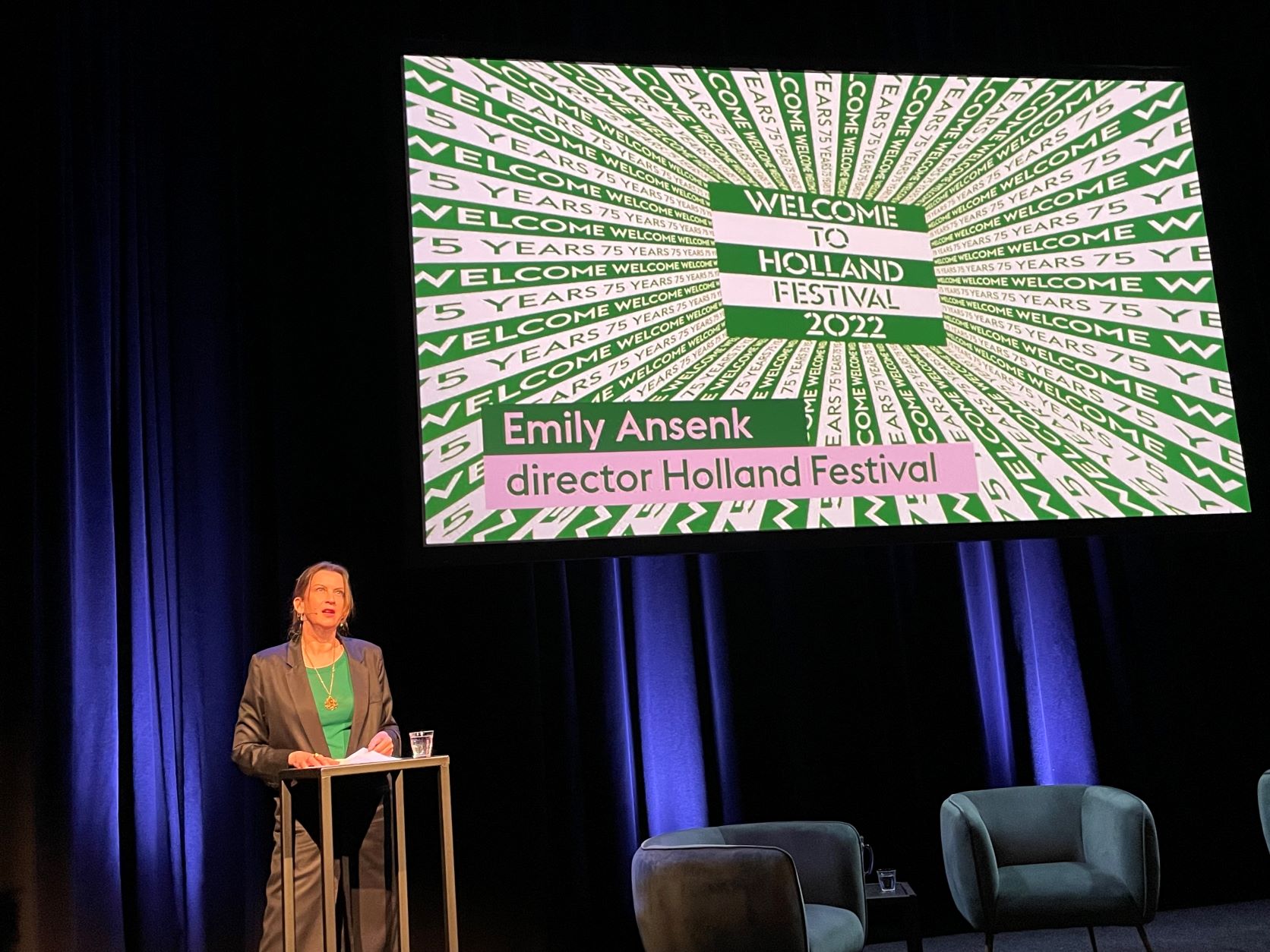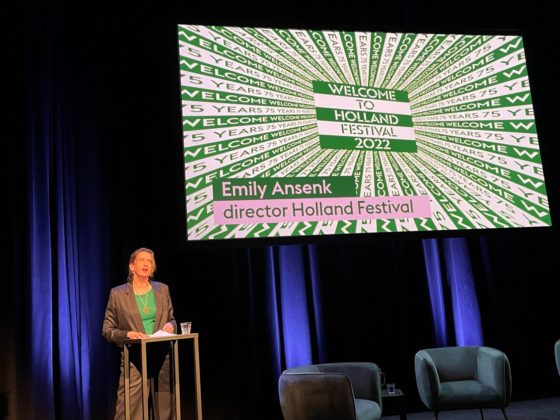Holland Festival programme promotes artistic connection in time of war


A main part of the 75th edition of the Holland Festival will probably not go ahead because of the invasion of Ukraine, but the festival makers have said this only highlights their message of art over war.
The multimedia installation, Euphoria, by artist Julian Rosefeldt, involved filming with a Ukrainian company and had to be stopped in February, according to Holland Festival director Emily Ansenk.
Announcing the programme for the festival, which runs in Amsterdam from June 3 to June 26 and which was started as a project to promote international cultural unity after World War II, Ansenk said that the festival seems even more relevant today.
‘We live in a drastic and dramatic time that requires us all to have a clear standpoint: how do you celebrate a diamond jubilee while in Europe a huge war is raging that we didn’t think was possible a few weeks ago?’ she said at a press launch this week.
Freedom
‘We are deeply shocked by what is happening now in Ukraine and we condemn this war in the strongest possible terms. Our thoughts are with all victims and residents, everyone who lives in Ukraine regardless of their language, background and ethnicity, all artists who need to take shelter or take up weapons themselves, and all families, organisations and cultural institutions opening their doors to refugees…
‘It is thanks to the efforts of many brave fighters 77 years ago, that we can do what we do here and now. The Holland Festival is the ultimate expression of freedom. So let us, in this dark time, use the power of art and culture to bring people together to listen to one another.’
She said that in a bizarre coincidence, the war had stopped filming for a major premiere, Euphoria, which was intended to be a 90-minute presentation on ‘unbridled modern consumerism’, shown in a loop for 17 days and open to all. It was being made with an Ukrainian crew, filmed in and around Kiev, but after being postponed due to corona last year, three weeks ago it stopped due to the Russian threat.
‘The filming is not complete, and the installation can probably not be completed in the time remaining until June,’ she said.
Renewal
However, the rest of the programme is firing full ahead, with unconventional theatre, art, dance and musical pieces focusing on themes of climate and representation. The programme has two associate artists, French-Beninese singer Angélique Kidjo and German theatre director Nicolas Stemann, and 35 productions with 109 performances, including 10 world premieres.
Unusual pieces include A Play for the Living in a Time of Extinction, which generates its own energy, a Mother Nature gig including Kidjo, Blue Lab Beats and Dutch Eurovision entrant Jeangu Macrooy, the new opera Antarctica and a Concertgebouw performance, Ifé, including music by Philip Glass performed by Kidjo and the Amsterdam Symphony Orchestra.
First billed as a collection of ‘high arts in the low lands’, the festival started in 1947. ‘The idea was, right after the war, by showing national and international art, to draw attention to international cooperation…and make whole a Europe torn apart,’ added Ansenk. ‘This was broadened out to the world…The values of artistic renewal, innovation and experimentation have been unchanged and the artists are always central.’
Thank you for donating to DutchNews.nl.
We could not provide the Dutch News service, and keep it free of charge, without the generous support of our readers. Your donations allow us to report on issues you tell us matter, and provide you with a summary of the most important Dutch news each day.
Make a donation